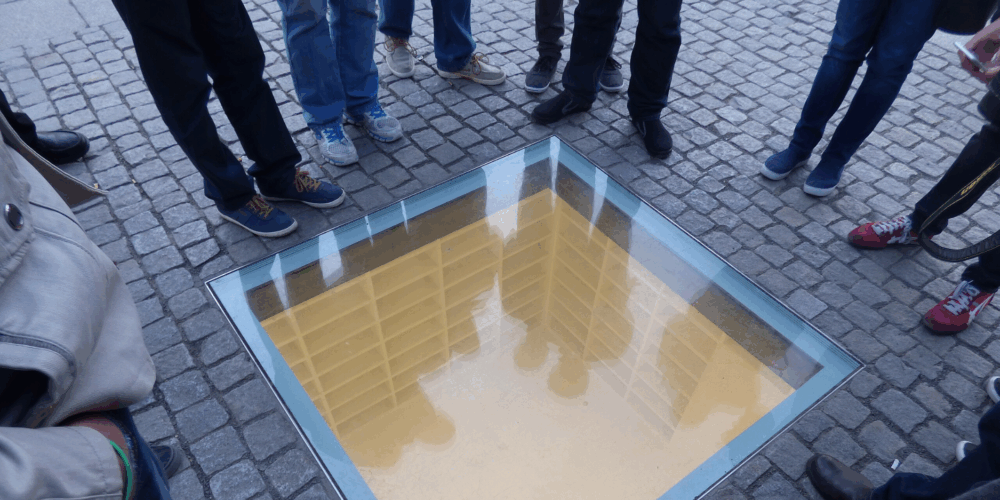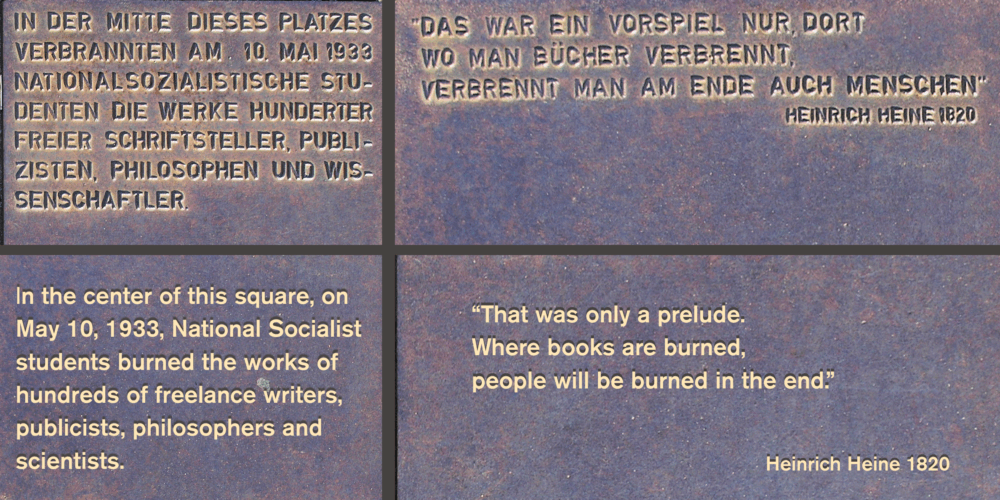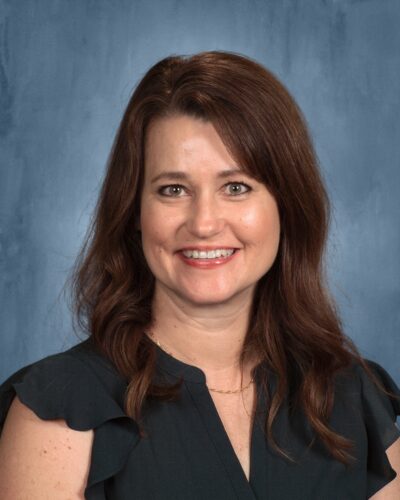Book Burning and Freedom to Read: Transatlantic Connections
 The Empty Library Photo: Luis Alvaz
The Empty Library Photo: Luis Alvaz
Amy Brownlee, a reading teacher and librarian in Kansas, took part in our Transatlantic Study Trip for Teachers. In this essay, first published on her blog, she reflects on the importance of intellectual freedom and shares her insights from her engagement with Germany’s history.
By Amy Brownlee
In June, I was privileged to be part of a group of U.S. teachers who spent nine days in Germany on a transatlantic study trip learning about the country’s modern aspects, including education, politics, government, and culture, and also delving into its complicated history.
While in Berlin, I visited “The Empty Library“, a memorial built in the public square where, on May 10, 1933, in front of a crowd of 40,000, Nazi university students burned 20,000 books deemed “objectionable” and “un-German.”
Organizers prepared a speech to be read at various book burning sites, including the words: “Against decadence and moral decay! For discipline and decency in the family and the nation” (Book Burning Memorial at Bebelplatz).
The book burning was carried out by a group of people trying to suppress ideas they didn’t agree with or find acceptable. Sound familiar?
The memorial, easy to miss if you don’t know to look for it, is made up of a glass panel set flush with the cobblestones. It serves as a window into an underground room featuring empty, white bookshelves, representing both the physical and intellectual void created by destroying books. Several feet away, a metal plate on the ground describes the purpose of the memorial in just a few powerful words.
Part of the memorial plaque reads: “That was only a prelude. Where books are burned, people will be burned in the end.” The quote is from a play by German-Jewish writer Heinrich Heine, whose work was banned by the Nazis. It is likely that copies of his work were burned in that very spot in 1933.

Among other blacklisted books targeted for burning that day was a title by American author, speaker, and activist Helen Keller. In a letter to German university students dated one day before the burning, Keller wrote, “History has taught you nothing if you think you can kill ideas. Tyrants have tried to do that often before, and the ideas have risen up in their might and destroyed them.”
Powerful words.
“A violation of the marketplace of ideas that is a bedrock principle of American life”
More than 90 years later, across the Atlantic, an Ohio man set fire to around 100 library books on Jewish, African American, and LGBTQ history according to a May 14, 2025, report from NBC News.
The incident elicited shock and outrage, especially from those who felt personally attacked due to identifying with the targeted groups.
Ohio Democratic Senator Kent Smith responded by saying this book burning incident “cannot be tolerated”.
Senator Smith went on to say: “I condemn this act, not only because it is a crime against our institutions and community, but also because it is fundamentally un-American. This act of violence is not just a crime against the public catalog of literature that was destroyed, but also is a violation of the marketplace of ideas that is a bedrock principle of American life”.
From Empty Library to Full Shelves: Moving from Censorship to Freedom
In another part of Berlin stands the American Memorial Library. Built during the 1950s and partially funded by donations from Americans, it became the central public library in West Berlin when the city was divided by the Berlin Wall.
The leader of our transatlantic study trip grew up in East Berlin. She told us about a childhood experience of going to the top of the TV Tower, a historical landmark with an observation deck that is the highest point in Berlin. She remembered seeing the spectacular view from the top and looking over into West Berlin and thinking, “Will I ever set foot there?”
She pointed out the American Memorial Library to our teacher group and shared memories of visiting this library as a teenager after the Berlin Wall came down and Germany was reunified. She told us the American Memorial Library was important because it was available to everyone, spread the ideals of democracy and freedom, and provided open access to ideas and information.
My librarian heart was singing when I heard that.
The message was loud and clear: Books are sacred. Libraries are powerful. Intellectual freedom is worth protecting.

Amy Brownlee is a reading teacher and librarian at a small, rural school district in Kansas. She was named the 2017 Kansas School Librarian of the Year and was selected for a National Endowment for the Humanities institute. She won a Fulbright-Hays fellowship and spent a month in Africa with the non-profit Ethiopia Reads and was part of this year’s cohort of Atlantik-Brücke’s Transatlantic Study Trip for Teachers.
